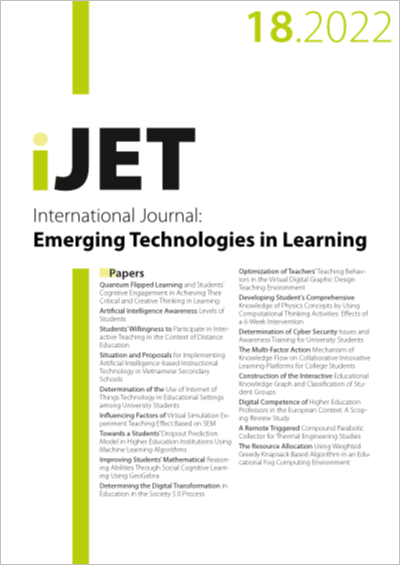Situation and Proposals for Implementing Artificial Intelligence-based Instructional Technology in Vietnamese Secondary Schools
DOI:
https://doi.org/10.3991/ijet.v17i18.31503Keywords:
artificial intelligence in education, rtificial intelligence-based instructional technology, Vietnamese Middle SchoolsAbstract
This study evaluated the level of necessity for bringing AI into teaching, then assessed the implementation of those applications as well as how feasible and effective such implementation is at Vietnamese Middle Schools. The approach to assessing the current situation in this study is the perspective of Artificial Intelligence-based instructional technology (AI-bIT) that considers the teaching process to be a technological process with three core components being teaching means (the key media is AI), teaching methods and teaching skills. A sample of 119 teachers come from Middle Schools belonged to some cities/provinces in Vietnam responded this survey form. The survey data is illustrated by descriptive statistics of Mean and the Independent-Samples t-test for comparison of different opinions. Based on the findings, it was concluded that teachers' awareness of AI-bIT is quite good, but the actual implementation of AI-bIT is still low, so the feasibility and effectiveness of AI-bIT is not high. It was therefore, recommended that, for reaching the outstanding advantages of AIED in the world, Vietnamese secondary education needs to be invested in technical infrastructure, fostering qualifications and expertise for teachers, as well as piloting AI-bIT models for exploiting AIED in feasible and effective way at Middle Schools.
Downloads
Published
How to Cite
Issue
Section
License
Copyright (c) 2022 Nguyen Thi Huong Giang, Nguyen Minh Giam, Nguyen Thi Hoai Nam

This work is licensed under a Creative Commons Attribution 4.0 International License.


